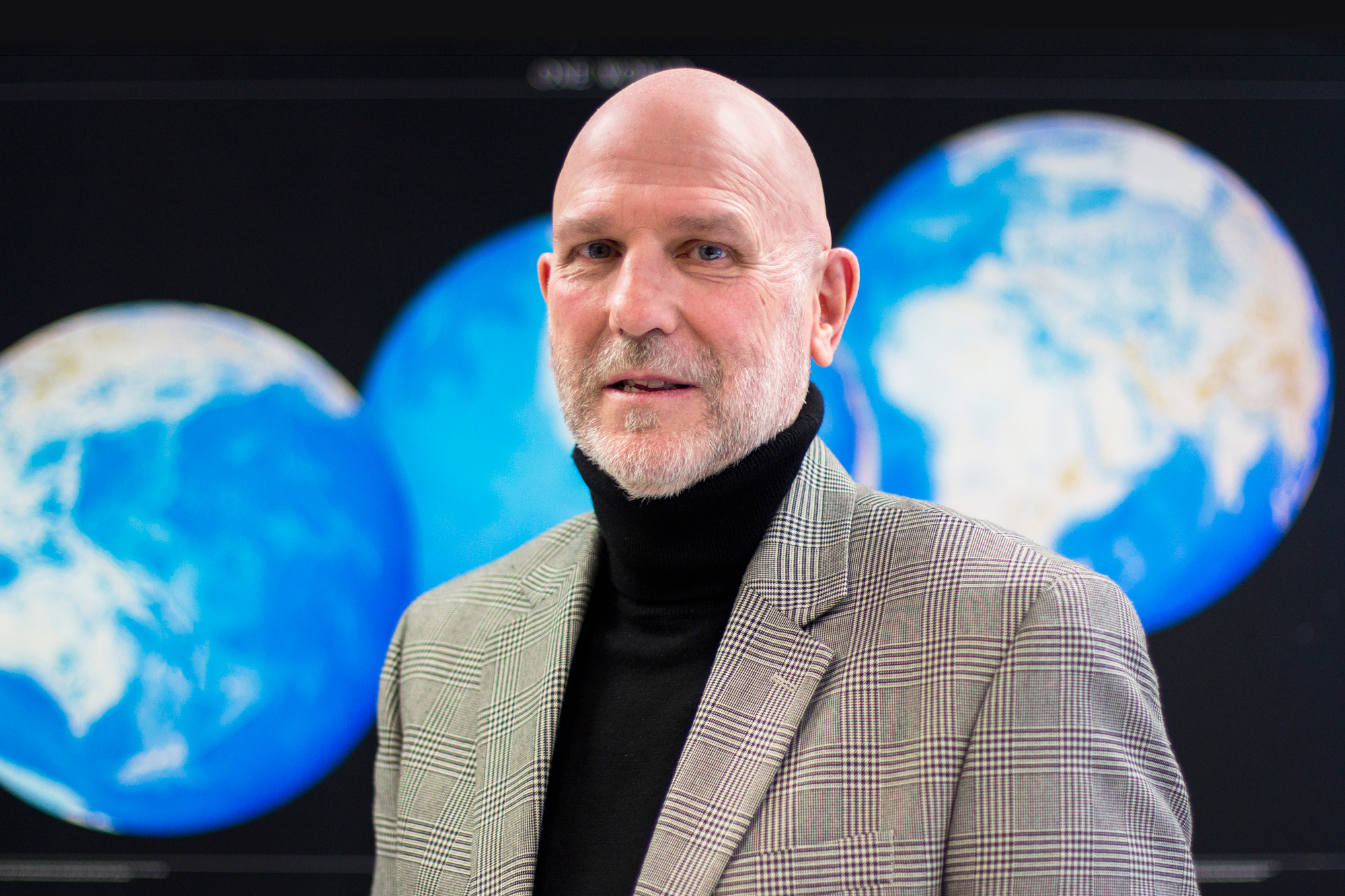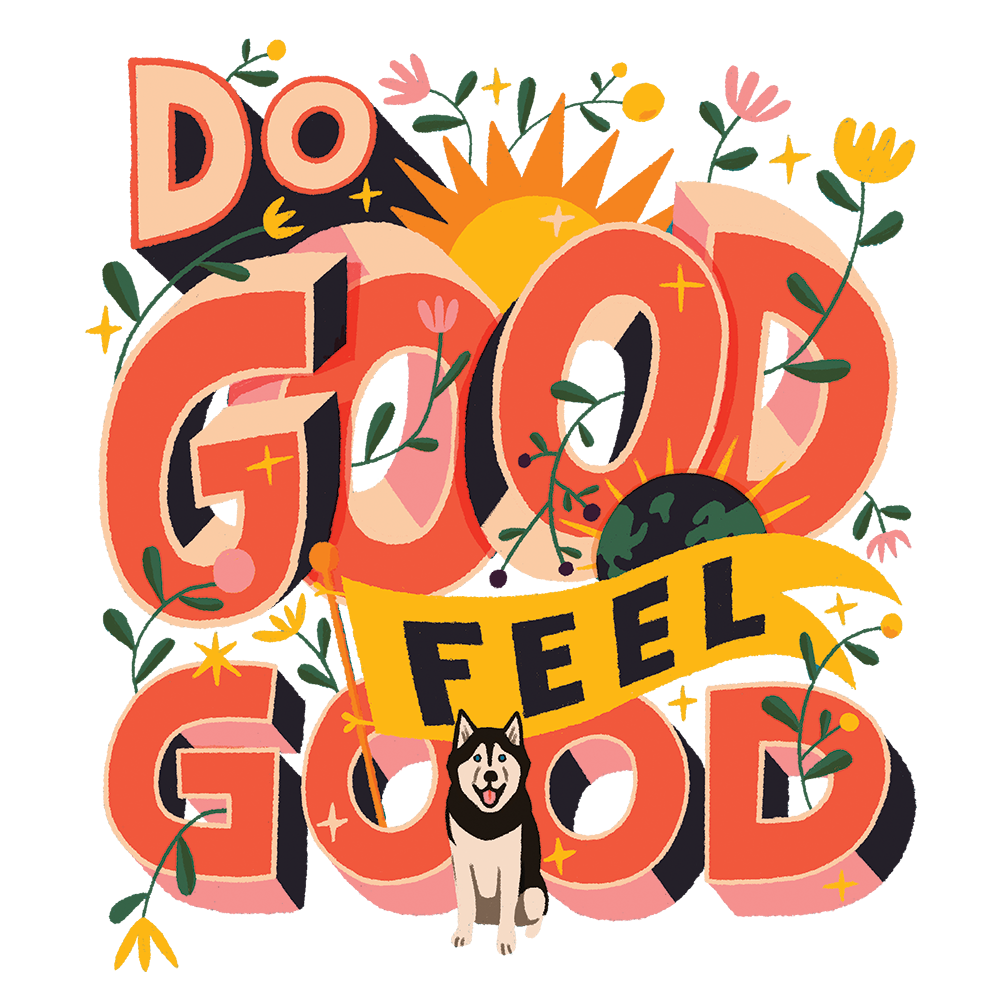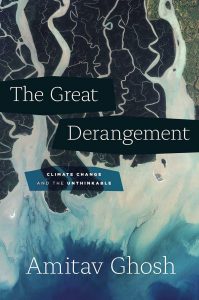| Do Good, Feel Good |

Inspiring Students to Save the Planet
By Lisa Stiepock
Photos by Bri Diaz '08 (CLAS), '10 MA
"Sustainability is arguably the biggest challenge we face in the 21st century," says Michael Willig. It's not just about sustainability, though. "Probably the most important questions we have to answer are not if a system is sustainable, but if it is desirable," says the Board of Trustees Distinguished Professor of Ecology and Evolutionary Biology. "We have many paths we can take in our stewardship, but science doesn't tell us which of those paths to take per se — it's human values that guide us. I don't think that each of us fully understands how we might marshal those perspectives and ways of knowing to the common good."
Willig also directs UConn's Institute of the Environment — tasked with bringing together science, the humanities, and social science to chart a course to a greener world. One of the many things the Institute is doing to help students find such perspectives and paths is getting them into the field with research programs abroad. A partnership with the Organization for Tropical Studies allows students from around the world to take UConn courses at three field stations in Costa Rica and one in South Africa.
"They provide outstanding opportunities for students to have a global experience where they see the world not only through their eyes but through the eyes of others who have different perspectives and cultures and social backgrounds," says Willig. "Truly I think this is an example of one of those life-transformative opportunities."

We are all in need of a little happiness and a little inspiration lately, so we've devoted this issue of the magazine to stories of just a few of the many UConn faculty, staff, students, and alumni who spend their days doing good in the world, making it a better place for all of us.
Being in the field with students, says Willig, " you see their eyes light up with the excitement of being in a new place or environment and you see them become hooked on that perspective on life, which is what a college education is all about essentially. It's called a liberal education not because we're liberals but because it liberates us from ignorance."
UConn replaced Duke as the program's school of record in 2019, which, Willig says, democratizes the opportunity. Now "kids from all sorts of social and economic backgrounds can participate. That's where a state institution like UConn becomes really important — we've got academic standards like Duke but we offer them at a price that students can afford. In fact we take that as part of our responsibility — to educate people regardless of circumstance.
That's the cool thing about being at a public university. This is who we are."
Willig has his own award-winning ecological research project in Puerto Rico, where for 32 years he has studied gastropods to understand the impact of hurricanes on tropical ecosystems. As a student, though, he never went abroad, because the programs were offered in the summer. "I could never afford to go to those classes. I came from a poor family where if you couldn't work in the summer, you couldn't afford to go to school the next year. So I really like the idea of making these experiences available to everyone."
Join UConn Reads for an Earth Day Event

Michael Willig and the rest of the steering committee for this year's UConn Reads invite you to join them at a virtual event with Amitav Ghosh, author of this year's selection: "The Great Derangement: Climate Change and the Unthinkable." In the book, says Willig, Ghosh deals with critical environmental issues from a humanist perspective. It's a way to get the broader UConn family, including faculty, staff, students, the surrounding community, and alumni, together to widen perspectives around a certain issue. Find out how to join in at s.uconn.edu/ghosh.

Leave a Reply